Israel-Hamas war: New travel warning for Aussies in Israel
The government has updated its travel warnings for Australians in Israel after it launched a retaliatory strike against Iran.
World
Don't miss out on the headlines from World. Followed categories will be added to My News.
Australians in Israel have been urged to leave the country urgently if it is safe to do so as concerns mount about further escalation of conflict in the region following Israel’s retaliatory strike on Iran.
The Department of Foreign Affairs and Trade updated its travel advice for Australians in Israel and the Palestinian territories, “to depart if it’s safe to do so”.
“Military attacks may result in airspace closures, flight cancellations and diversions and other travel disruptions,” the warning stated.
DFAT also warned Australians in Israel that Tel Aviv’s Ben Gurion International Airport “may pause operations due to heightened security concerns at any time, and at short notice”.
Ian Parmeter from the Centre for Arab and Islamic Studies at ANU said such warnings from DFAT were rare, but were issued when it was believed Australians faced “serious danger”.
“It means that whatever has happened could result in an Iranian counter-strike against Israel, which could put all civilians in Israel at risk. It’s taking what you might call due care,” he said.
Conflicting reports emerged from Iran about Israel’s strike, with the FARS news site reporting an explosion northwest of the city of Isfahan, but the government claiming the explosions were the result of drones being shot down, and not missiles detonating.
Several drones “have been successfully shot down by the country’s air defence, there are no reports of a missile attack for now,” Iran’s space agency spokesman Hossein Dalirian said on X.
US officials told America’s ABC and CBS that Israeli missiles had hit an Iranian site but did not specify the location.
They did not confirm other reports of explosions in southern Syria and in Iraq, including in the capital Baghdad.
This doesn’t appear to just be a Short-Term Suspension of Flights it seems to be a Mass Cancellation, which possibly indicates that Iran isn’t planning on Reopening its Western Airspace for a while. https://t.co/UN2H4PWUcD
— OSINTdefender (@sentdefender) April 19, 2024
Airlines including Emirates and flydubai diverted flights that were due to fly over Iranian airspace with more cancellations expected.
Qantas had already announced it was amending the flight plan of its Perth to London service to avoid Iranian airspace.
The attack comes just days after Iran launched 300 drones and missiles at Israel.
Israel had informed Washington of its intention to launch a retaliatory strike within the next 24-48 hours on Thursday, Bloomberg reported.
Aaron David Miller, a senior fellow at the Carnegie Endowment for International Peace, told the BBC that it was unclear whether Israeli strike was a case of “signalling and messaging” or whether the Middle East was “climbing up the escalatory ladder”.
“The Iranians appear to be ridiculing and trivialising the Israeli attack … as a series of drone strikes,” he said.
It was possible escalation could be avoided if each side considered they had “discharged the minimum obligations” to protect national pride, Mr Miller told the BBC.
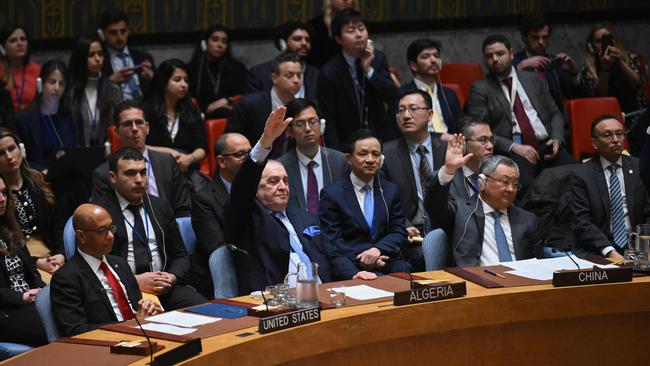
Earlier, the United States vetoed a draft resolution that recommended to the 193-member UN General Assembly that the State of Palestine be granted full membership of the UN, blocking the world body’s recognition of a Palestinian state.
The vote in the 15-member security council was 12 in favour, the US opposed and two abstentions, the UK and Switzerland.
The US said an independent Palestinian state should be established through direct negotiations between Israel and the Palestinian Authority and not through UN action.
“We completely believe in the two-state solution and a state for the Palestinian people. We believe the best and the most sustainable way to do that is through direct negotiations between the parties,” the White House national security spokesperson, John Kirby, said.
The Palestinian presidency condemned the US veto of the Security Council resolution that recommended full UN membership for a Palestinian state.
The presidency said in a statement the US veto was “unfair, unethical and unjustified”.
Palestinians currently have non-member observer status, granted by the UN general assembly in 2012. An application to become a full member with voting rights would have to be approved by the security council and two-thirds of the general assembly.
FOLLOW UPDATES:
IRAN COULD REVIEW ‘NUCLEAR DOCTRINE’ AFTER ISRAELI THREATS
Iran could review its “nuclear doctrine” following Israeli threats, a senior Iranian Revolutionary Guards commander said on Thursday local time, raising concerns about Tehran’s nuclear program which it has always said was strictly for peaceful purposes.
Israel has said it will retaliate against Iran’s missile and drone attack, which Tehran says was carried out in response to a suspected Israeli strike on its embassy compound in Damascus earlier this month.
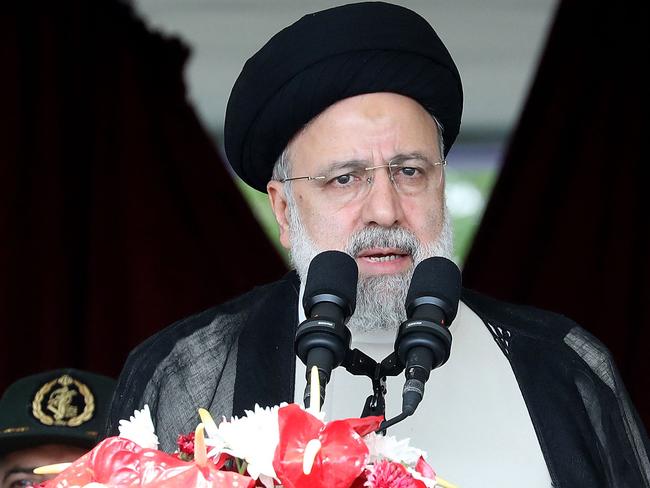
“The threats of the Zionist regime (Israel) against Iran’s nuclear facilities make it possible to review our nuclear doctrine and deviate from our previous considerations,” Ahmad Haghtalab, the Guards commander in charge of nuclear security, was quoted as saying by the semi-official Tasnim news agency.
Iran’s Supreme Leader, Ayatollah Ali Khamenei, has the final word on Tehran’s nuclear program, which the west suspects has military purposes.
In 2021, Iran’s then-intelligence minister said Western pressure could push Tehran to seek nuclear weapons, the development of which Khamenei banned in a fatwa, or religious decree, in the early 2000s.
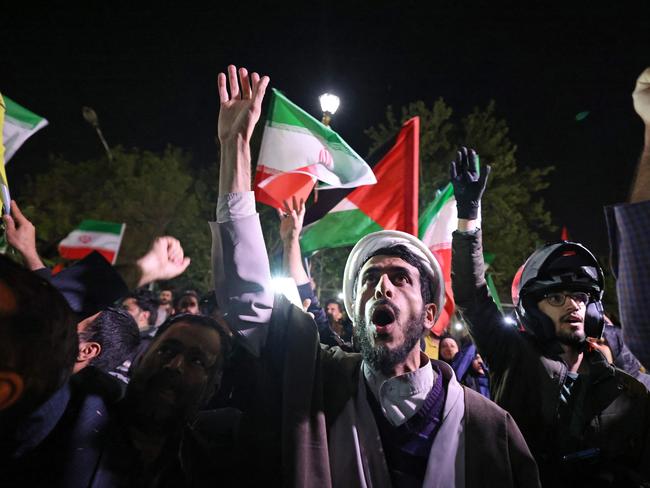
“Building and stockpiling nuclear bombs is wrong and using it is haram (religiously forbidden) … Although we have nuclear technology, Iran has firmly avoided it,” Khamenei said in 2019.
“If the Zionist regime wants to take action against our nuclear centres and facilities, we will surely and categorically reciprocate with advanced missiles against their own nuclear sites,” Haghtalab said.
Indirect talks between Tehran and Washington to revive Iran’s 2015 nuclear pact have stalled since 2022.
The accord, aimed at keeping Iran from developing a nuclear weapon, required Tehran to accept restrictions on its nuclear program and more extensive United Nations’ inspections, in exchange for an end to UN, European Union and U.S. sanctions.
The deal, which had capped Iran’s uranium enrichment at 3.67 per cent was abandoned in 2018 by then-US President Donald Trump, who said it was too generous.
Rafael Grossi, the head of the UN nuclear watchdog, said in February that Iran continued to enrich uranium at rates up to 60 per cent purity, which is far beyond the needs for commercial nuclear use.
ISRAEL ASSAULT HAS TURNED GAZA INTO ‘HUMANITARIAN HELLSCAPE’
More than six months of Israel’s military offensive in Gaza has turned the Palestinian territory into a “humanitarian hellscape,” UN chief Antonio Guterres said Thursday, also warning that one wrong move could see the Middle East devolve into wider war.
World leaders have been watching nervously since Israel vowed to retaliate against Iran for its unprecedented weekend assault on its arch enemy, with fears soaring that escalating tit-for-tat attacks could push the region towards broader conflict.
Israel’s top ally and military supplier, the United States, and Britain unveiled sweeping sanctions against Iran’s military drone program as governments kept up calls for restraint from all sides.
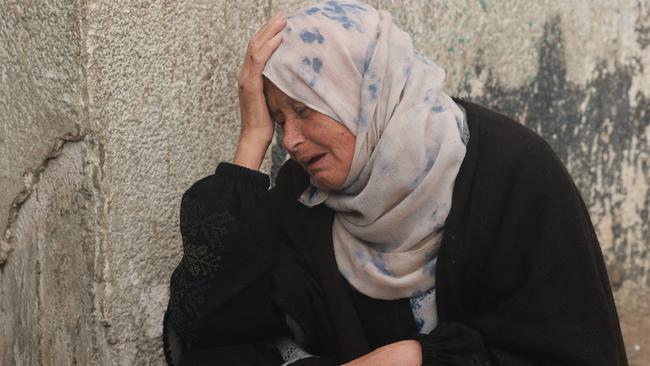
In the latest in a series of threats between the two foes, Iranian Foreign Minister Hossein Amir-Abdollahian warned that Tehran would make Israel “regret” any attack on the Islamic republic. While the world’s attention has been focused on the Iran tensions, Israel has continued carrying out its offensive on besieged Gaza.
The Israeli army said it had bombed dozens of targets in the territory on Thursday, as Qatar said efforts to broker a truce had stalled.
“The Middle East is on a precipice,” Guterres said. “One miscalculation, one miscommunication, one mistake, could lead to the unthinkable — a full-scale regional conflict that would be devastating for all involved.”
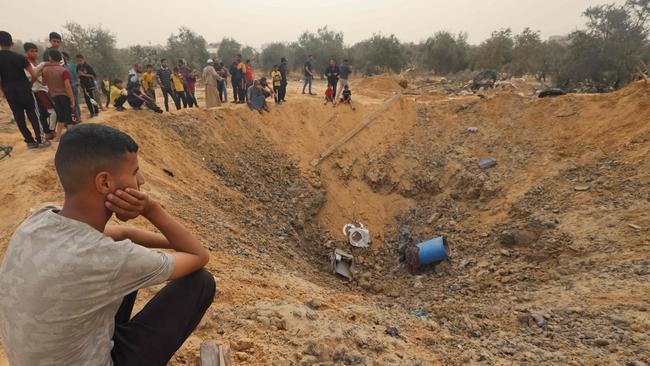
The UN chief again called for an immediate ceasefire in Gaza, calling for Israel to do more to allow aid into the territory. “In Gaza, six and a half months of Israeli military operations have created a humanitarian hellscape,” Guterres told the UN Security Council.
US SLAPS SANCTIONS ON IRAN
Meanwhile, Israel launched more deadly strikes on besieged Gaza on Thursday local time as western governments unveiled sweeping sanctions against Iran’s military drone program in response to the country’s unprecedented attack on its arch enemy Israel.
World powers have been watching nervously since Israel vowed to retaliate against Iran for the weekend assault, with fears soaring that escalating tit-for-tat attacks could push the region towards wider war.
Further stoking tensions, Iran warned on Thursday local time that if Israel struck Iranian atomic sites during its expected retaliation, Tehran would in turn target Israeli “nuclear facilities”.
And more than six months into the bloodiest ever Gaza war, the Israeli army said it had bombed dozens of targets in the territory, as Qatar said efforts to broker a truce have stalled.
Israeli Prime Minister Benjamin Netanyahu, who has vowed to destroy Hamas over its October 7 attack that started the war, has stressed that Israel “reserves the right to protect itself” against Iran.
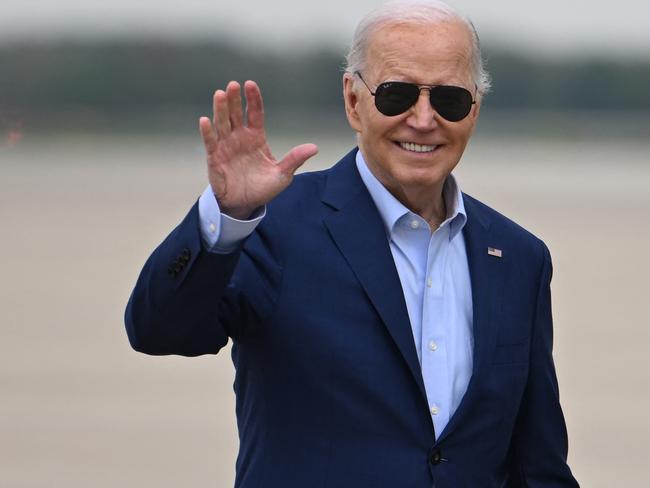
The Islamic republic last weekend carried out its first ever attack to directly target its regional foe but Israel, backed by its allies, intercepted most of the 300 missiles and drones, and suffered no deaths.
Iran’s attack was retaliation for an April 1 air strike, widely blamed on Israel, which levelled its consulate in Damascus and killed seven Revolutionary Guards.
The international community has urged de-escalation since Iran’s attack, which came after months of violence involving Israel and Iran-backed groups in Lebanon, Iraq, Syria and Yemen.
“The Middle East is on a precipice,” UN chief Antonio Guterres warned on Thursday local time.
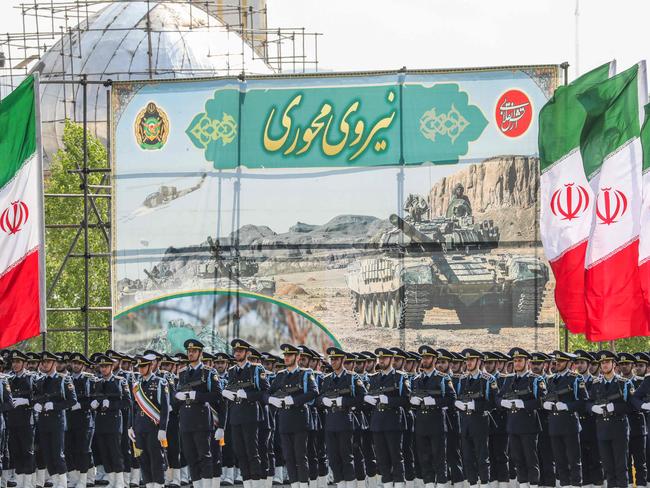
“One miscalculation, one miscommunication, one mistake, could lead to the unthinkable – a full-scale regional conflict that would be devastating for all involved,” he told the UN Security Council.
The United States, Israel’s top ally and military supplier, has made clear it won’t join any Israeli attack on Iran, instead unveiling new sanctions on Thursday against the country’s military drone program.
“We are holding Iran accountable,” US President Joe Biden said, adding that he had discussed ramping up economic pressure on Tehran with other leaders at a G7 meeting in Capri, Italy.
The US sanctions target 16 people and two entities involved in producing the drones used in Iran’s attack, as well as companies providing parts to the country’s steel industry.
Washington added that the United Kingdom would impose sanctions on Iran’s drone and missile program, which was also the target of promised sanctions announced by the European Union on Wednesday.
IDF ACCUSED OF TORTURING AND SEXUALLY ASSAULTING PALESTINIANS
The IDF has been accused of beating and torturing Palestinians captured in Gaza, including UN staff, and subjecting them to extreme sexual violence.
The disturbing allegations were made in the United Nations report followed extensive interviews with Palestinian prisoners returning to Gaza.
Israeli soldiers allegedly held detainees in cages, deprived them of food, water and sleep and tortured them during interrogation.
Released Palestinians also allege they were forced to drink toilet water, were attacked by dogs and faced threats that their relatives would be killed, according to the UN report.
A man quoted in the report said no one was immune to the grave ill-treatment.
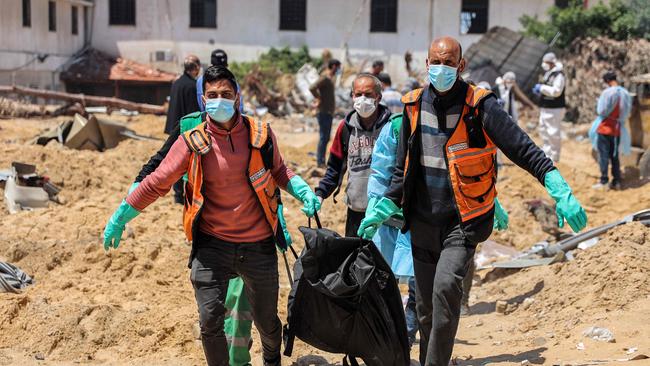
“I saw people [in detention] 70 years old, very old. There were people with Alzheimer’s, old people who were blind, people with disabilities who couldn’t walk, people who had shrapnel in their backs and couldn’t stand up, people with epilepsy … and torture was for everyone.
“Even for people who didn’t know their own names,” the 46-year-old said.
“We told them that someone was blind. They didn’t care.‘
Another man, aged 41, also quoted in the report, said he was sexually violated with a hot metal rod. He said he was also beaten with shoes and watched as other detainees succumbed to their injuries.
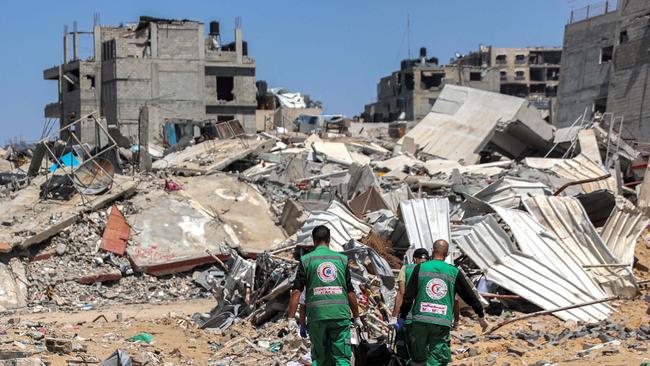
The men are among the 1506 detainees whose release from Israeli authorities’ custody as they returned to Gaza was documented in the period until April 4 by UNRWA, which Israel has accused of employing members of militant groups in Gaza.
In response, UNRWA has accused Israel of using torture and ill-treatment of its detained staffers to give false confessions about the links between the agency, Hamas and the October 7 attack on Israel.
Among the documented released detainees, are 43 children and 84 women.
‘They pulled us, beat us, they took us in the bus to the Damon prison after five days,’ said a 34-year-old woman quoted in the report.
“A male soldier took off our hijabs and they pinched us and touched our bodies, including our breasts. We were blindfolded and we were feeling them touching us, pushing our heads to the bus.”
More Coverage
Originally published as Israel-Hamas war: New travel warning for Aussies in Israel




